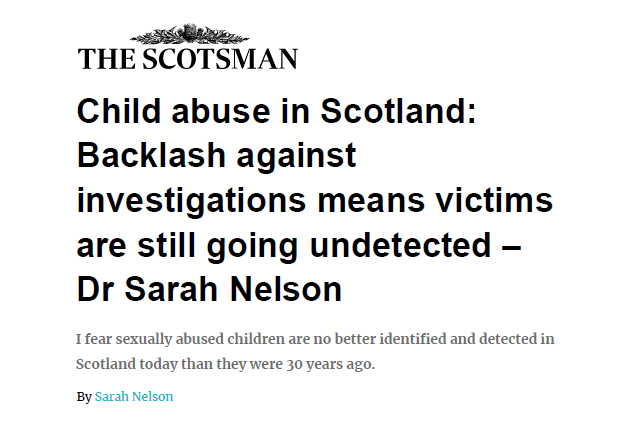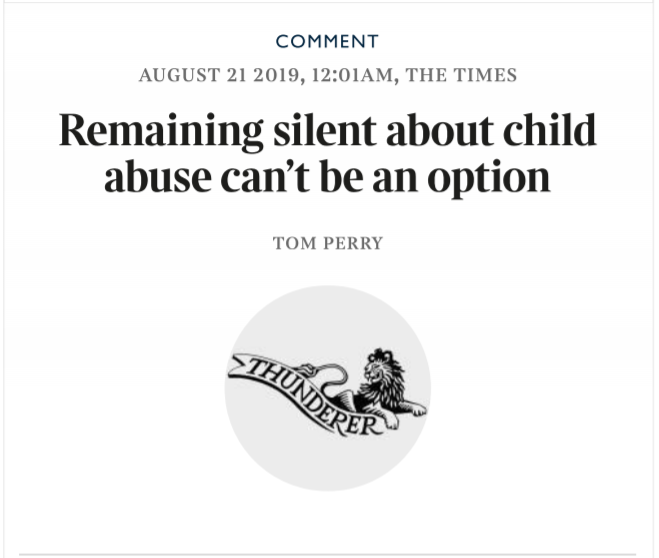Scotland : Child abuse victims are still going undetected || Yet Scottish academics still mistakenly reject mandatory reporting
On 22nd October 2020 an article by Dr Sarah Nelson of the Centre for Research for Families and Relationships appeared in The Scotsman.

The reader is informed :
